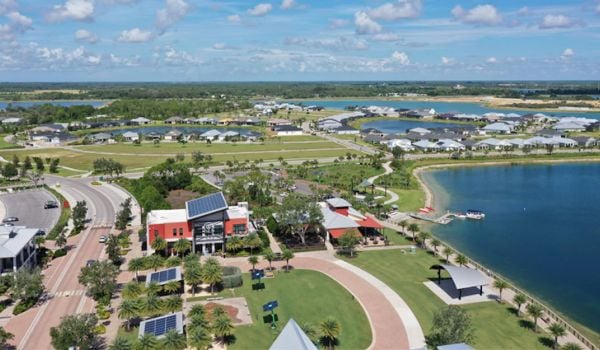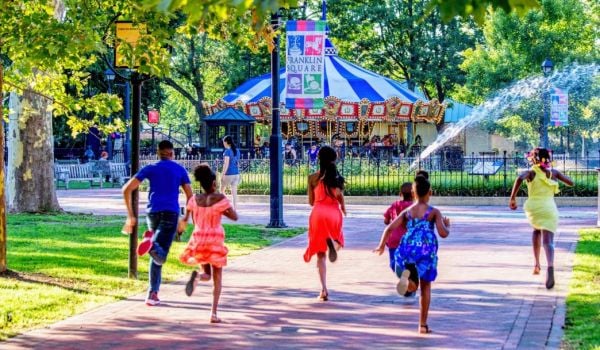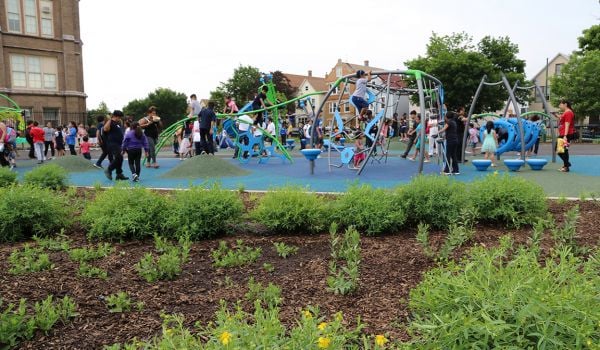A contest inviting designers, policymakers and developers to imagine climate change solutions for the San Francisco area will open for submissions in April, The Rockefeller Foundation announced Monday.
The Bay Area: Resilient by Design Challenge is modeled after a similar New York-area contest begun in 2013. That one was pioneered by the Department of Housing and Urban Development (also with funding from Rockefeller). Its San Francisco counterpart is made possible with a $4.6 million grant from Rockefeller, and builds on efforts by the San Francisco Planning Department. HUD is not involved.
“Across the Bay Area, increasingly frequent flooding is putting more and more strain on aging infrastructure, while continued sea-level rise is threatening coastal resources. These are real and serious challenges, and they require real and serious solutions,” Judith Rodin, president of The Rockefeller Foundation, said in a press release. “We are incredibly excited to take all that we learned from our successful Rebuild by Design program — as well as the best practices developed by our 100 Resilient Cities — to help the Bay Area keep disruptions from becoming disasters.”
The East Coast contest’s selected winners included a $20 million study of how to protect the food distribution center in Hunts Point and a $335 million berm along Manhattan’s Lower East Side, among others. The proposals were slated to receive nearly a billion dollars from HUD’s Community Development Block Grant program in 2014.
“Such significant financial support from the federal government not only marks a notable shift in the way HUD distributes disaster relief funds, it also establishes a new and powerful role for design competitions in the United States,” Graham T. Beck wrote for Next City in 2014. (It’s worth noting that, two years and one administration later, the new president’s team removed most mentions of climate change from the White House web page Saturday. President Trump also famously tweeted that climate change is a hoax several years ago. Whether federal funds continue to flow to design projects like this remains to be seen.)
The West Coast challenge will be divided into two phases. In the first, teams will participate in a three-month “exploratory research and community engagement period to develop initial design concepts for specific sites,” according to the release. The second will be a “collaborative five-month intensive design phase” in which teams will work with residents, businesses, community-based organizations and local politicians. Because three Bay Area cities (Oakland, San Francisco and Berkeley) are already part of another climate change adaptation effort, Rockefeller’s 100 Resilient Cities, the two projects will collaborate.
Design challenges like the San Francisco one (which have undoubtedly pioneered some innovative infrastructure solutions) have also been criticized for their potential to institutionalize what Tracey S. Chaplin, a Ph.D. student at the University of Washington Jackson School of International Studies, has called “dangerous mistakes.”
“This competition fails on three crucial measures: It does not provide legal protections for people who have been displaced by floods associated with climate change. It falls far short of a just, equitable solution by pitting vulnerable communities in competition with each other for assistance. Perhaps most damningly, it simply won’t help people fast enough,” she wrote in a Next City op-ed last year, referring to HUD’s National Disaster Resilience Competition.
Whether competition-based design programs go far enough, the results of this new West Coast chapter will be interesting to watch.
Editor’s Note: This article has been changed to clarify the relationship between The Rockefeller Foundation and the San Francisco Planning Department.

Rachel Dovey is an award-winning freelance writer and former USC Annenberg fellow living at the northern tip of California’s Bay Area. She writes about infrastructure, water and climate change and has been published by Bust, Wired, Paste, SF Weekly, the East Bay Express and the North Bay Bohemian
Follow Rachel .(JavaScript must be enabled to view this email address)

_920_552_80.jpg)














